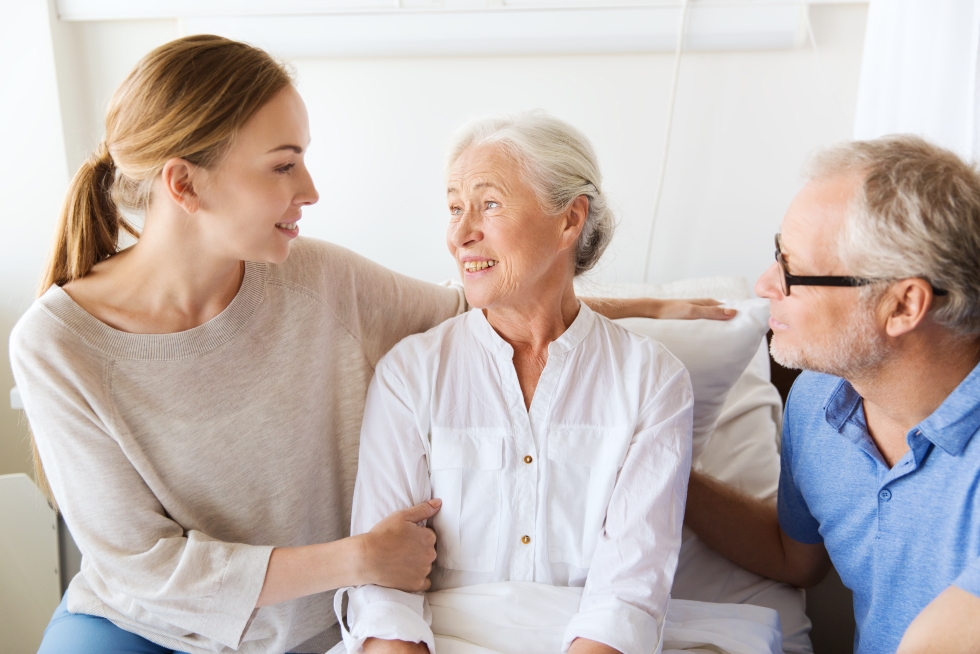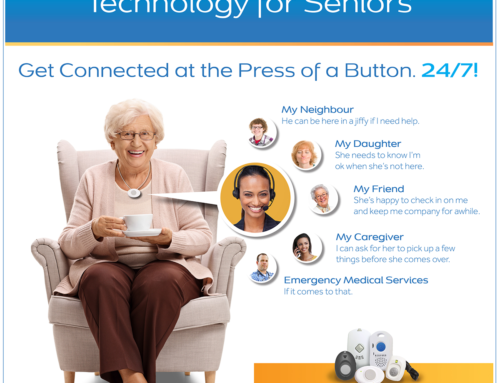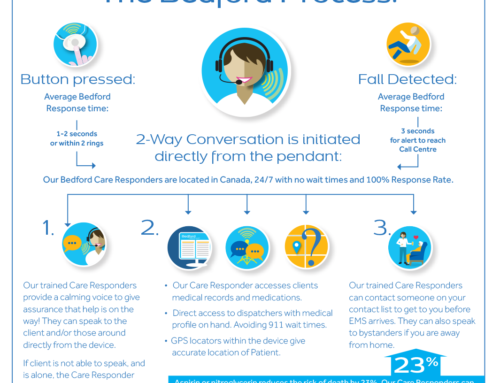- Exercise Regularly: Regular exercise helps to maintain muscle and bone strength and flexibility, reducing the risk of injuries.
- Eat Balanced Meals: It is important to eat three well balanced meals per day to avoid weakness, dizziness and fatigue.
- Wear Your Medical Alert Pendant. When you need us, we are right there with you.
- Have Regular Health Check-Ups: Changes in your vision, hearing, bones and muscles could lead to a fall – if you fall, visit your doctor.
- Use Medication Safely: Some medications can make you drowsy or dizzy; if you experience any of these side effects, discuss them with your doctor or pharmacist.
- Wear Supportive Footwear: Wear low-heeled footwear with non-skid soles indoors and outdoors.
- Use Walking Aids Correctly: A cane or walker should be fitted for your height.
- Remove Clutter: Clear objects from stairs and traffic areas.
- Secure Rugs: Avoid small rugs or mats that could slide or bunch up and cause someone to trip.
- Light Up Your Path: Night lights can be used to brighten dark hallways, bathrooms and stairways.
- Do a Home Safety Check: Basic safety features for every home include secure handrails, well-lit stairs, night lights, non-skid bath mats and grab bars.
- Avoid Rushing: Rushing increases your risk of falling – take your time.
1.888.755.3055






